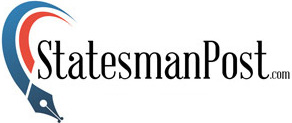
The FBI’s chilling visit to journalist Ken Klippenstein’s home demonstrates the growing threat to press freedom in America. Klippenstein’s situation calls into question the credibility of journalists. Journalism heavily depends on communication security. He was banned from Twitter after revealing the JD Vance dossier.
FBI Visit Sets Off Alarms
The FBI recently paid an unexpected visit to the home of journalist Ken Klippenstein. This encounter was conducted without a legal warrant, which both Klippenstein and press freedom advocates found particularly concerning. Klippenstein was banned by Twitter for disclosing personal information about a vice presidential candidate. Elon Musk has been accused of censorship for the suspension.
Klippenstein’s ordeal raises broader concerns about press freedom. His experience is seen as part of a chilling global trend of media silence. It coincided with his account being temporarily suspended by social media platform X for allegedly sharing unredacted private information, a pattern that raises concerns about the tech industry’s role in restricting journalistic freedom.
There you have it folks, the truth as plain as day.
Klippenstein: "I was tipped off by the DoD and the IC"… and then some.#ufoX #uapX #ovniX https://t.co/b6jK0QvLvz pic.twitter.com/ZoK7DhpDNY
— UAP Juan (@planethunter56) August 10, 2023
Global Context
A decline in press freedom is not unique to the United States. Some argue that the left receives preferential treatment. More than half of the countries included in the 2023 World Press Freedom Index have hostile environments for journalists. This decline indicates a deterioration in democracy around the world, with experts identifying media silencing as an early indicator of autocratic rule.
“laws – from sedition to censorship – have long been used to punish journalists.” UN Humans Rights Council
Violence against journalists is on the rise, with more than 95 journalists killed in recent conflicts in the Middle East. These crimes frequently go unpunished, as evidenced by the fact that 80% of such murders remain unsolved. This impunity encourages further violence and intimidation of journalists, creating a barrier to truthful reporting and weakening democracy.
Journalist Ken Klippenstein was just suspended from X for posting the J.D. Vance dossier. Elon's working overtime to suppress free speech. #FreeKen pic.twitter.com/KXlueaYK5w
— Molly Ploofkins™ (@Mollyploofkins) September 26, 2024
Surveillance and its Threats
Surveillance practices add another layer of risk, as journalists must balance protecting their sources with gathering information that is important to the public interest. Surveillance has evolved into a formidable barrier, forcing journalists to go to extraordinary lengths to ensure communications security. This complicates their work and makes sources reluctant to share information. The introduction of surveillance into the journalistic sphere has been described as a chilling effect, suffocating meaningful discourse on issues of public concern.
“The work of journalists and lawyers is central to our democracy,” said report author Alex Sinha. “When their work suffers, so do we.” –
The United Nations Plan of Action on Journalist Safety, which includes journalist safety training and capacity-building programs, is a positive step. As long as the action benefits both sides of the political spectrum.
Sources:
- Silencing the Truth: The Global Crisis of Press Freedom and Journalist Safety
- Surveillance Harming Journalism, Law, Democracy












